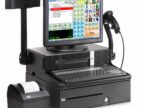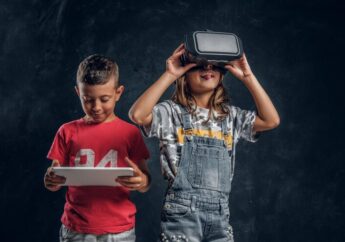Classroom Technology Trends that are Changing Education
by Mashum Mollah Technology Published on: 30 May 2017 Last Updated on: 18 August 2023

In today’s world invention of new technology and advancement of old technology has exhibited no traces of slowing down. It has an equal impact in the field of education in today’s mobile-centric world wherein it is always connected to the school environment.
In Fort front instructors also ensure that they are up-to- minute with latest innovations and technology trends so that their students are able to learn with the best technology available. Now let’s have a look at classroom technologies that are expected to continue in 2017.
Digital Textbooks
Nowadays textbooks are becoming more expensive. They are used only for few years before new edition comes out. A digital textbook is more cost-effective and it can be easily updated to the most recent edition in education.
It reduces storage space. There is no need of having a separate space for CBSE textbooks, homework and many other files. Another great advantage is the font flexibility.
Mind Mapping
Mind Mapping is a powerful graphic technique that is a key to unlock the potential of a brain. It makes learning interactive and it is passive. This helps students to understand and recall information. Mind mapping can be applied to every facet of life.
Gamification
Gamification is a process that is more fun and engaging. It is a process that involves a website or an online community wherein game mechanics is integrated into it to motivate participation and loyalty. Suppose if you win a game, your mind will be at ease, as a result, a chemical will be released in a brain that triggers pleasure and motivation. This becomes a positive inspiration for learning.
Flipped Learning
Flipped Learning is the contrary of regular classroom-based learning. Students will be handed studying material beforehand. For instance, students learn their Algebra chapters at home by watching the video lecture, studying the content in detail online and then doing their homework in class.
Remote Learning
This mode of learning is for students who cannot make into the school but attend virtually. Students attend class through videos and access the content. In a similar manner, you can also bring subject experts and teachers. Some of the technologies involved in remote learning include email, social media, class forums, and video conferencing.
Big Data
It has an exceptional flexibility to change how we teach and learn. It gives real-time information. It helps students by allowing them to focus on a field they actually need help with.







































































































